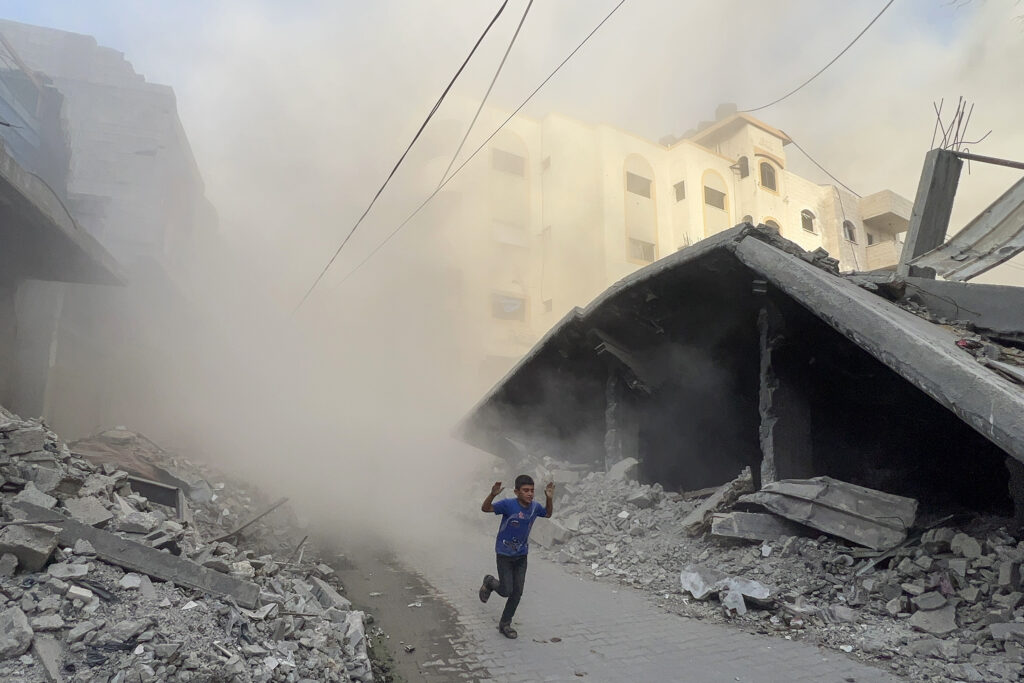AFP Asia Business
Israel pounds Gaza City as military takes first steps in offensive
Israel hammered Gaza City and its outskirts overnight, residents said Thursday, as the military announced it had taken initial steps in its push to capture Hamas’s last major stronghold.The newly approved plan authorises the call-up of roughly 60,000 reservists, deepening fears the campaign will worsen the already catastrophic humanitarian crisis in the Gaza Strip.”We are not waiting. We have begun the preliminary actions, and already now, IDF (army) troops are holding the outskirts of Gaza City,” said the Israeli military.Israel’s plans to expand the fighting and seize Gaza City have sparked international outcry as well as domestic opposition. The Red Cross became the latest voice to condemn the plan on Thursday, calling it “intolerable”.Ahead of the offensive, the Israeli military said the call-up of the reservists would begin in early September, adding the second phase of the so-called operation “Gideon’s Chariots” had begun. Gaza City residents described relentless bombardments overnight.”The house shakes with us all night long — the sound of explosions, artillery, warplanes, ambulances, and cries for help is killing us,” one of them, Ahmad al-Shanti, told AFP. “The sound is getting closer, but where would we go?”Another resident, Amal Abdel-Aal, said she watched the heavy strikes on the area, a week after being displaced from her home in Gaza City’s Al-Sabra neighbourhood. “No one in Gaza has slept — not last night, not for a week. The artillery and air strikes in the east never stop. The sky flashes all night long,” she added. Gaza civil defence agency spokesman Mahmud Bassal said air strikes and artillery fire overnight targeted areas to the northwest and southeast of Gaza City. Late Thursday, the Israeli military detailed a range of operations across the Gaza Strip in recent weeks.It said the manoeuvres and strikes “created the conditions” for the military to intensify pressure on Hamas and lay the groundwork for the next stages of the campaign. The UN humanitarian agency has warned the Israeli plan to expand military operations in Gaza City would have “a horrific humanitarian impact” on the already exhausted population.”Forcing hundreds of thousands to move south is a recipe for further disaster and could amount to forcible transfer,” OCHA said. The UN Human Rights office in the Palestinian territories also voiced concern.”Hundreds of families have been forced to flee, including many children, persons with disabilities, and older people, with nowhere safe to go,” it said.Others reportedly “remain trapped, completely cut off from food, water and medicine supplies”, it added.As Israel tightened its grip on Gaza City’s outskirts, meditators continued to wait for an official Israeli reaction to their latest ceasefire proposal that Hamas accepted earlier this week.- ‘Ball’ in Israel’s court -Israel and Hamas have held a string of indirect negotiations throughout the nearly two-year conflict, paving the way for a pair of short ceasefires during which Israeli hostages were freed in exchange for Palestinian prisoners.Of the 251 captives kidnapped during Hamas’s October 2023 onslaught on southern Israel that triggered the war, 49 are still in Gaza, including 27 the Israeli military says are dead.Sources from Hamas and its ally Islamic Jihad told AFP this week that the latest ceasefire proposal calls for the release of 10 hostages and 18 bodies from Gaza.The remaining hostages would be released in a second phase alongside talks for a wider settlement.Qatar and Egypt, backed by the United States, have overseen several rounds of shuttle diplomacy.Qatar said the latest proposal was “almost identical” to an earlier version approved by Israel, while Cario said Monday that “the ball is now in its (Israel’s) court”.Late Wednesday, Hamas lambasted the plans to take control of Gaza City, saying in a statement it showed its “blatant disregard” for efforts to broker a ceasefire and hostage release deal.Hamas’s October 2023 attack on Israel resulted in the deaths of 1,219 people, mostly civilians, according to an AFP tally based on official figures.Israel’s offensive has killed at least 62,122 Palestinians, most of them civilians, according to figures from the health ministry in Hamas-run Gaza, which the United Nations considers reliable.Media restrictions in Gaza and difficulties in accessing many areas mean AFP is unable to independently verify the tolls and details provided by the civil defence agency or the Israeli military.

